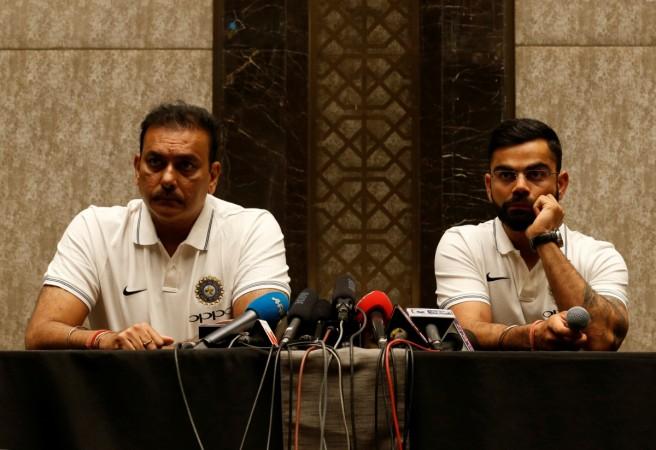- India will play four Tests in Australia between December 6, 2018, to January 7, 2019
- India and Bangladesh are the only two top-flight teams to have not played day-night Tests yet
The schedule for India's tour of Australia 2018-19 was announced Monday, April 30, by Cricket Australia (CA), who had been hopeful of hosting Virat Kohli's men in a day-night Test.
CA boss James Sutherland even said they were optimistic about hosting the twilight Test and that they would be engaging in talks with the Board of Control for Cricket in India (BCCI) over the situation.
As it turns out, Indian cricket team head coach Ravi Shastri has conveyed to the Supreme Court-appointed Committee of Administrators (CoA) that Kohli's men are unwilling to play the day-night Test in Adelaide.
Notably, the CA had been waiting for Indian cricket board's nod for quite some time now. Day-night Tests have been part of Australia's annual cricket calendar ever since the inaugural pink-ball Test was played in Adelaide between the hosts and New Zealand.
However, with the players making their intentions clear, the question of playing the pink-ball Test in Adelaide doesn't arise, a CoA member told The Indian Express.
"The CoA spoke to Ravi Shastri on April 12 and Shastri categorically mentioned that he has consulted with the team and the team is not ready to play pink-ball cricket just now. So a question of playing a day-night Test match in Adelaide just doesn't arise," the COA member said.
Why India are unwilling to play day-night Test in Adelaide

The report also states India are not keen on "jeopardizing" their chances of winning a Test series in Australia by playing a day-night Test as they are used to playing with the pink-ball.
Notably, the world number one Test side, which had tested South Africa on the road earlier this year, are favorites to beat Australia Down Under. The hosts will be without their former captain and vice-captain, Steve Smith and David Warner, who were handed one-year bans following the much-publicized ball-tampering saga.
Exposure to pink-ball is a must before playing day-night cricket as the pink Kookaburra tends to swing quite a lot under the lights. Also, a grass-rich pitch needs to be prepared for twilight Tests as abrasive surfaces will hamper the seam of the ball earlier than usual.
India and Bangladesh are the only two high-profile Test-playing nations to have not played a day-night Test yet.
Contrary to media reports that had emerged earlier this month, the Asian giants are also unlikely to host the West Indies in a day-night Test during their tour to India in October this year.
BCCI acting secretary Amitabh Chaudhary reportedly spoke in favor of the twilight Test last week, saying he had consulted the team management, selectors and the office bearers over the issue.
Earlier in February, Chaudhary was pulled up by the CoA for initiating a proposal for the day-night Test against the West Indies without consulting the latter and the stakeholders of Indian cricket. Shastri reportedly replied in the affirmative to the acting secretary's email.
However, it had come to light that skipper Kohli and the coach were not on the same page over hosting day-night Tests in the near future.
India tour of Australia 2018/19 - Complete schedule
- 1st T20 (Brisbane) - November 21
- 2nd T20 (Melbourne) - November 23
- 3rd T20 (Sydney) - November 25
- 1st Test (Adelaide) - December 6 to 10
- 2nd Test (Perth) - December 14 to 18
- 3rd Test (Melbourne) - December 26-30
- 4th Test (Sydney) - January 3 to 7
- 1st ODI (Sydney) - January 12
- 2nd ODI (Adelaide) - January 15
- 3rd ODI (Melbourne) - January 18














